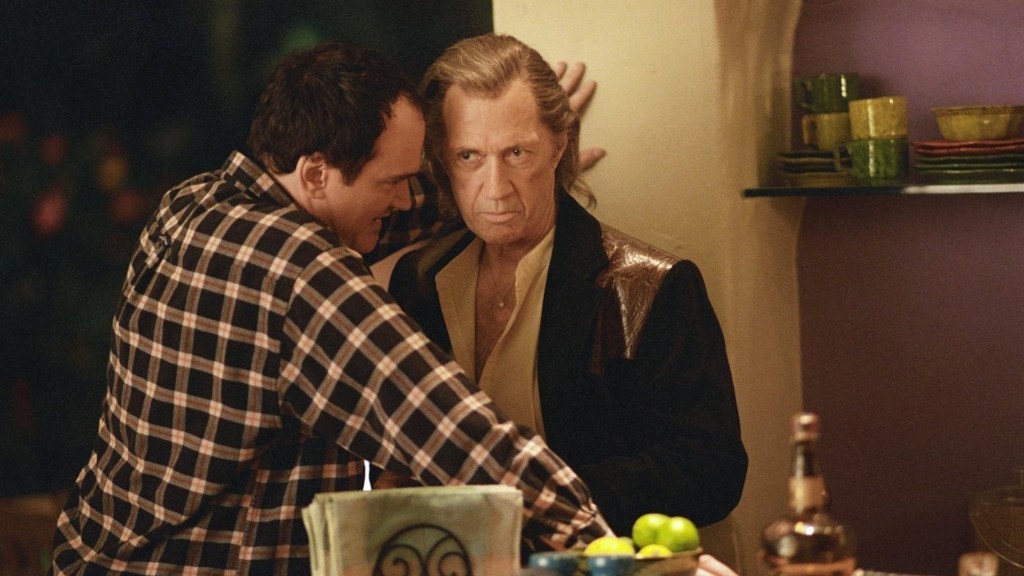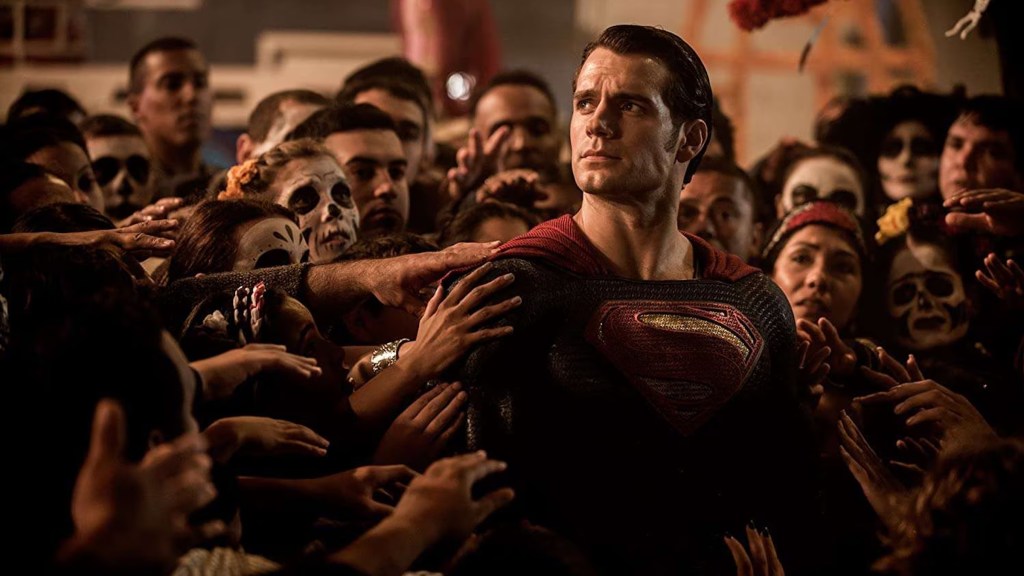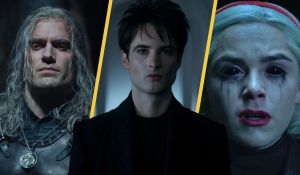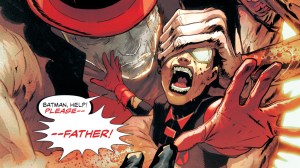If the difference between how Henry Cavill played Superman and David Corenswet‘s portrayal of the character has taught us anything, it’s that people can have wildly different takes on the Man of Steel. Acclaimed director and noted comic book fan Quentin Tarantino is no exception; in 2004, the Pulp Fiction auteur delivered a controversial interpretation of the Superman mythos through his most notorious villain — David Carradine’s Bill. Near the end of Kill Bill: Vol. 2, Bill delivers a monologue about superheroes that focuses on the trope of secret identities, specifically as it relates to Superman.
Videos by ComicBook.com
Tarantino, in a nutshell, proposes that the Clark Kent persona is a caricature of humanity, based on how Superman views us — i.e., fragile and ineffectual. While most fans consider Bill’s Superman musings a garbage assessment of the character, some believe Tarantino was right on the money. Both opinions are frankly irrelevant: Bill is wrong, but that was likely the director’s intention.
Quentin Tarantino Isn’t Using Bill to Express His Own Opinions on Superheroes

Bill’s monologue is often mistaken as Tarantino’s own feelings on the Last Son of Krypton, and it’s easy to understand why. Screenwriters often use their characters as mouthpieces for their own opinions and beliefs. While Tarantino has done this in the past — John Travolta’s famous Pulp Fiction speech about the European names for American fast food sprang from a real-life trip the director had taken to Amsterdam — there’s no reason to believe he took that approach when writing Kill Bill.
What’s more likely is that Bill’s assumption that Superman looks down on humanity with pity and disdain is more a product of his own skewed view of the world rather than a reflection of Tarantino’s comic book literacy or lack thereof. For proof, let’s look at the greater context of the scene where Bill gives his grand speech on Metahumans. Bill has just injected The Bride, aka Beatrix Kiddo (Uma Thurman), with a truth serum so he can question her on her decision to quit the life of a top-shelf assassin in favor of roleplaying a humble record store clerk in rural Texas.
While waiting for the serum to take effect, Bill begins monologuing like every narcissistic movie villain since the dawn of cinema. Rather than giving away his evil master plan, however, Bill instead delivers a diatribe about Superman and how his “disguise” as mild-mannered Clark Kent mirrors that of Kiddo’s nom de guerre, Arlene Plympton. According to the self-described “murdering bastard,” Clark Kent is a “costume” that Superman wears to blend in with us.”
“Clark Kent is how Superman views us,” explains Bill. He then goes on to list the key aspects of the Clark Kent persona from his point of view, “He’s weak, he’s unsure of himself, he’s a coward.” “Clark Kent,” Bill states, “is Superman’s critique on the whole human race.”
“Sorta like Beatrix Kiddo and Mrs. Tommy Plympton,” Bill continues, drawing a parallel between Superman’s secret identity and what he calls “the costume of Arlene Plympton,” that Beatrix Kiddo would have worn to fit in in suburbia while hiding the “natural born killer,” she is at heart.
Tarantino Predicted Zack Snyder’s Take on Superman

While the idea that Superman is a god slumming it with us mortals certainly isn’t unheard of, most comic book fans disagree, including Quentin Tarantino. Bill might be “cool” like most Tarantino characters, but he’s a bad guy through and through. And why does this bad guy assume that Superman looks down on “regular people?” Because that’s what Bill does.
Bill can only view Superman in relation to his own experiences, and in Bill’s experience, powerful men treat average, working-class schlubs like lower life forms. Of course, Bill assumes that an extraterrestrial being who can move mountains would think of humans as cattle or ants because, as far as Bill’s concerned, that’s what they are. Sure, one could say, “It’s not that deep,” and assume that Tarantino just wanted to shoehorn a really cool superhero theory he thought up in the shower into what could arguably be considered his magnum opus.
But then again, we’re talking about a director who classifies some of his films as taking place in a “movie universe” that the characters from his other film universe — the “realer than real universe” — would go see at the theater. In other words, with Tarantino, it’s always that deep.
There’s a Good Chance That Tarantino Understands Superman the Way Most Fans Do

In all likelihood, Tarantino “gets” Superman the way most fans do. He understands that both Clark Kent and Superman are just two sides of Kal-El, both real and both essential facets of the Superman mythos. Superman could never look down on humanity because he would be looking down on the people who raised him, his lovers, his friends, and most importantly, himself.
So next time you watch Kill Bill in its entirety, try to remember that the infamous Superman speech isn’t Quentin Tarantino trying to convince you that Big Blue thinks everyone else is beneath him, but the ramblings of an evil genius that assumes everyone is as cynical as he is.
Do you agree with our assessment of Kill Bill‘s Superman monologue? Let us know in the comments!










